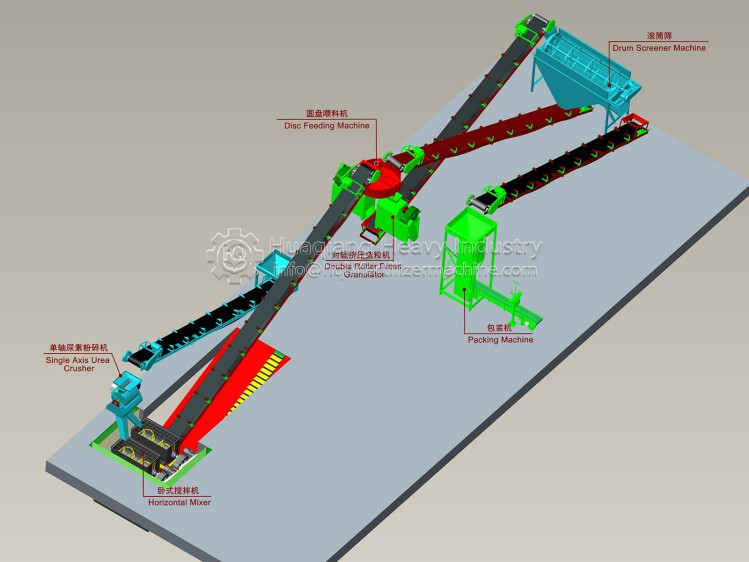The commercial organic fertilizer sold on the market is a kind of fertilizer which has been treated by the fertilizer production line. It has eliminated the harm and can be used directly. Animal manure can not be directly used as organic fertilizer in the soil, which will cause great harm to the soil. Therefore, it is suggested to purchase organic fertilizer processed by fertilizer granulator, which is convenient and efficient.

1. Acidification of soil can induce various rhizosphere diseases and virus diseases
As the pH value of fresh chicken manure is about 4, it is extremely acidic, which will acidify the soil, causing chemical injury and serious damage to the stem base and root tissue. Thus, a large number of viral pathogens, soil borne bacteria and viruses carried by chicken manure are provided with access and infection opportunities. Once the humidity and temperature reach the range value, diseases will break out. However, the use of chicken manure with incomplete fermentation can easily cause plant wilting, yellow withering, short withering, no flowers and fruits, and even death; virus disease, epidemic disease, stem and base rot, root rot, bacterial wilt and so on are the most obvious sequelae of chicken manure use;
2. Breeding of root knot nematodes
Chicken manure is the campsite and hotbed of root knot nematode. The number of eggs carried by chicken manure is about 100 per 1000 g. The nematode eggs in chicken manure are very easy to hatch and multiply by tens of thousands overnight. The incidence of nematodes in the soil increased by more than 500% in the plots with chicken manure. The nematodes are very sensitive to chemicals, and they will quickly move to the depth of 50 cm-1.5 m underground to avoid the disease. The root knot nematode is one of the most fatal hidden dangers for the old shed of more than 3 years.
3. Bringing antibiotics and heavy metals, affecting the safety of agricultural products
Nowadays, in large-scale livestock and poultry breeding, a large number of antibiotics are used in order to improve feed utilization rate and promote animal growth. Approximately 70% of antibiotics cannot be absorbed after use, and most of them are usually excreted in feces and urine in the form of original drugs or other metabolites, resulting in a generally higher content of antibiotics in animal feces. The survey shows that the current typical types of antibiotics in vegetable soil mainly include quinolones, tetracyclines and sulfonamides.
Unfermented and decomposed chicken manure containing tetracycline has a significant inhibitory effect on chlorophyll content and root vitality, and is negatively correlated with tetracycline concentration. Oxytetracycline can affect the physiological processes of crop roots to significantly inhibit their growth. As the concentration of oxytetracycline increases, the chlorophyll content decreases and leaves tend to turn yellow. Therefore, if these kinds of antibiotics are contained in chicken manure, it is easy to cause yellowing of vegetable heart leaves, poor growth, and endanger the safety of agricultural products.
After the feces are fermented, they are processed again and made into targeted commercial fertilizers with the rotary drum granulator, which can also greatly increase crop yields and agricultural benefits.